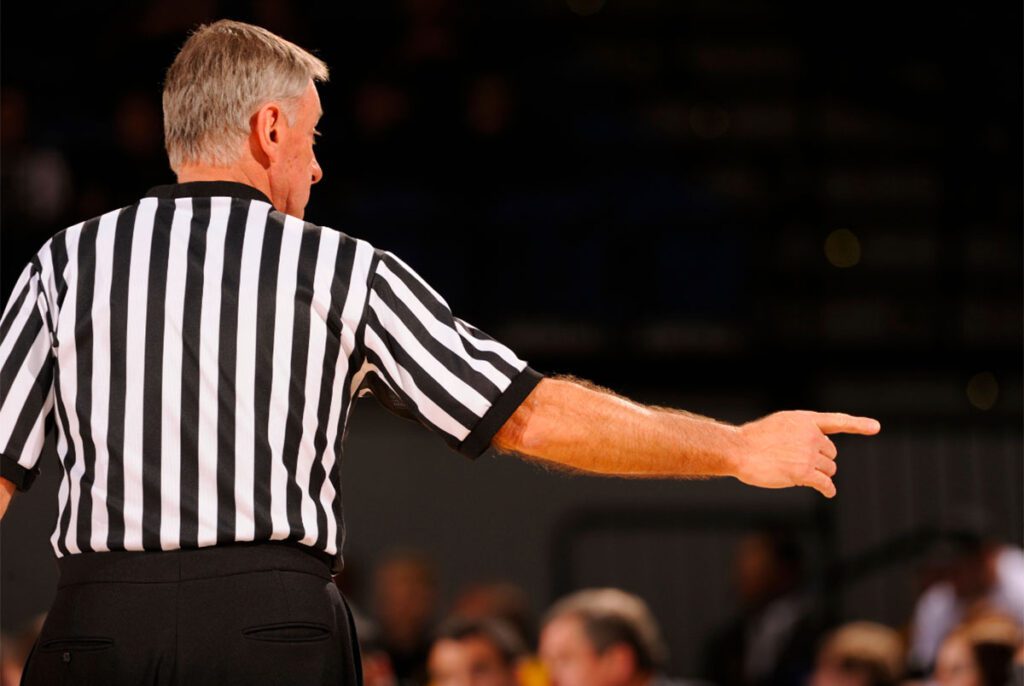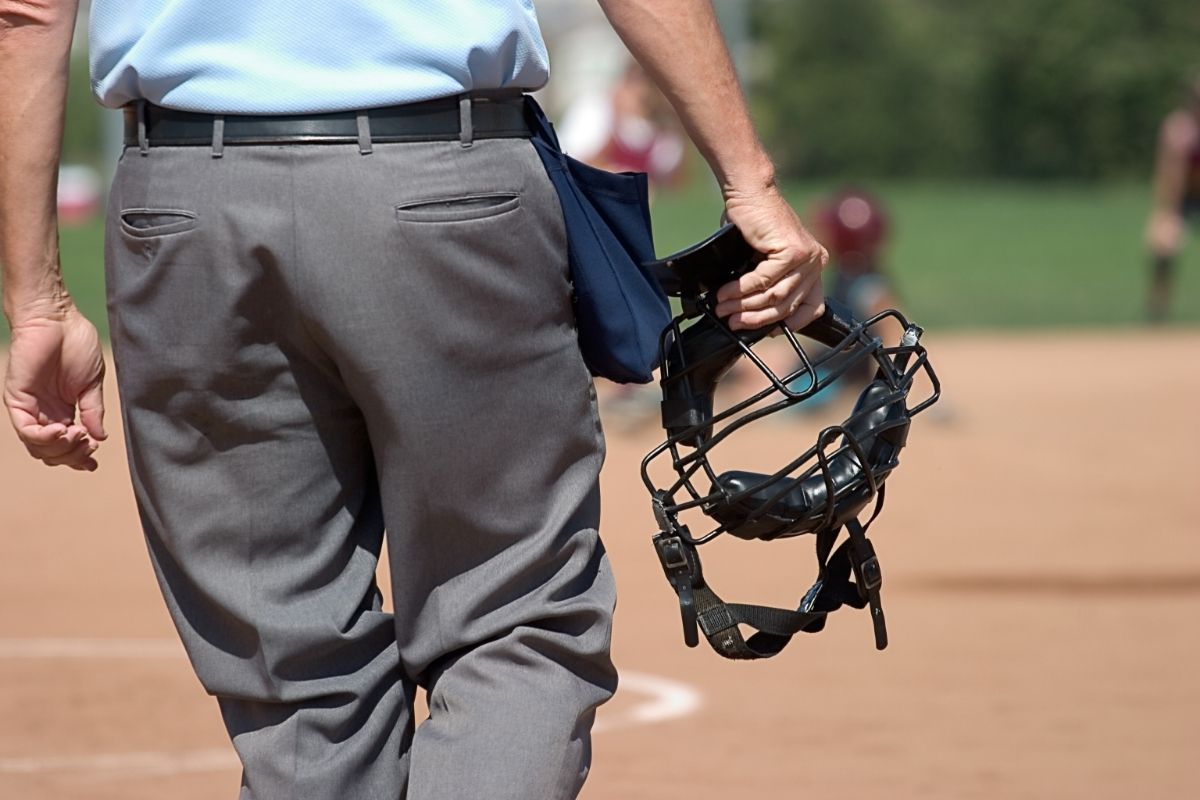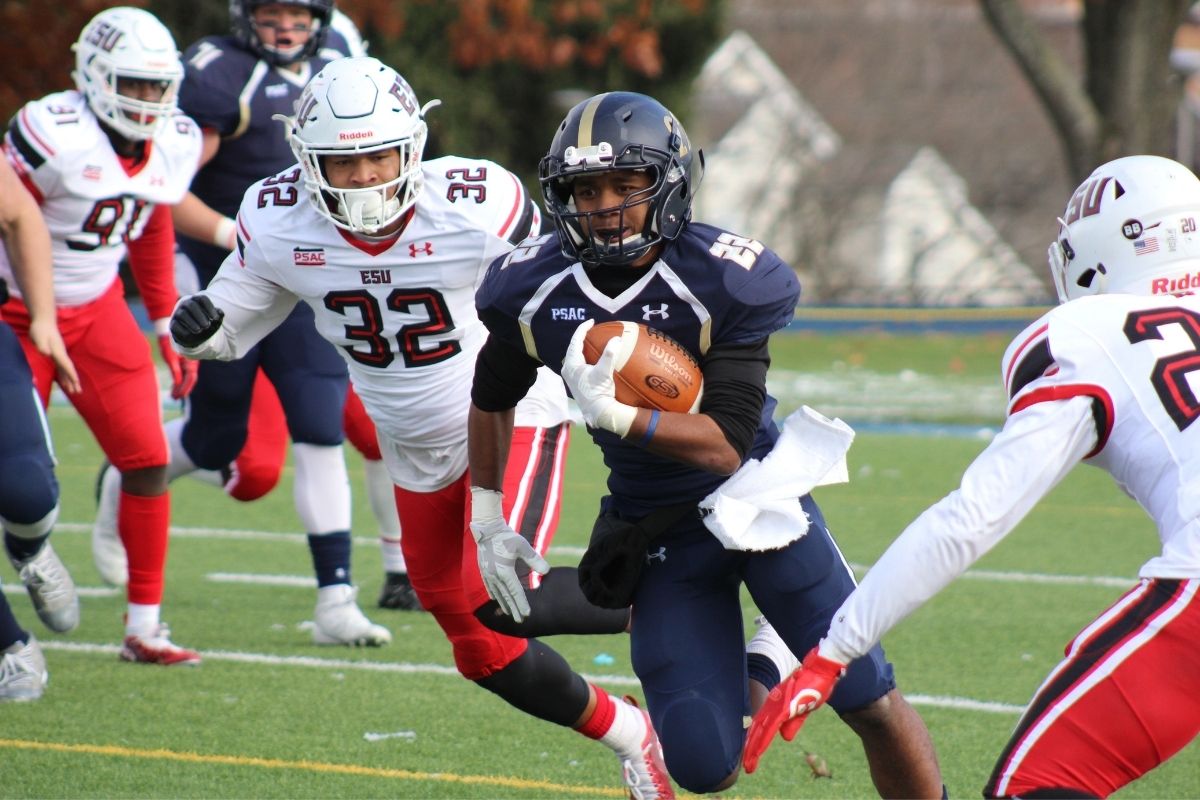Sports are international, and whilst we can’t all communicate using language at times, playing games will always connect us in a friendly but competitive environment.
But while players don’t necessarily need to speak to opposing players, how do referees speak to players of different nationalities?


In this article we’ll be talking about what language referees speak to players in, and try to get to the bottom of how this communication issue is overcome. Let’s get started.
Language Barriers
So we all know that Language barriers can be a real issue when it comes to playing international sports.
The world cup is a prime example of how players from completely different nations come together to play soccer, and can’t speak a word of each other’s language, so how do they solve this issue? Referees.
In the last world cup, in the group Stage clash between Spain and Iran, we saw an Iranian goal controversially waved off by the referee for being offside.
Both sets of players immediately surrounded the ref, an Uruguayan named Andres Cunha, and began yelling at him.
The official language of Uruguay is Spanish, so dialect aside, it would’ve been relatively easy for Cunha and the Spanish players to understand one another. But what about the Iranian players?
This kind of situation happens at least once a game in a World Cup tournament featuring 32 teams, from 32 different countries that speak roughly 18-20 different languages.
There’s teams that compete with one another from locations as far-flung from each other as South Korea and Sweden.
Add to the mix, a third team of referees, who frequently hail from an entirely different country than either of the teams on the field.
It can be a multicultural mash of different personalities on the pitch, and the referees have to be able to communicate with everyone there.
So you’re probably wondering, how exactly do teams that speak two different languages, as well as referees that may speak a third language, communicate with one another when they’re out on a pitch watched by hundreds of thousands of fans, playing or refereeing an extremely competitive game?
It’s important to remember too, that not a single game will go by without a player or a group of players, shouting at the referee to passionately argue that it clearly was, or clearly was not; a goal, a foul, a bad tackle, a red or yellow card, offsides, a free kick or penalty, a yellow card, or whatever else the issue at stake might be.
Sure, there’s lots of hand gesturing going on, some expressive faces being made.
There are also universally recognized hand signals to signify standard calls in the game, like goals, corner kicks, penalties, substitutions, and offsides which are all used during international games so that all sides understand what’s going on.
But with matches lasting 90 minutes plus stoppage time, is it really possible for the referee to keep the whole match together if it’s just players yelling at him in two different languages he doesn’t understand, while he attempts to respond in a third language?


FIFA’s Rules
Actually, the laws of the game have been designed to make it possible for a referee to do his or her job without speaking, by simply using gestures.
Even red and yellow cards were invented as a means to circumvent the language barrier in international soccer, and they do their job well, regardless of whatever language you speak, you’ll understand a red or yellow card, and everything that comes with that.
FIFA, soccer’s governing body, has four official languages that they recognize: English, German, French, and Spanish. So do refs and players speak all four of those languages to each other in a match?
It’s doubtful, instead games will be planned ahead of time, and players will most likely confirm what language they’ll be speaking to the referee before the match begins.
In the buildup to every World Cup, FIFA holds training conferences that refs in contention to officiate had to attend.
In addition to rigorous fitness demands (referees will typically run between 6 and 7.5 miles per game), one of the requirements was that they be able to speak English, and any other languages are merely a benefit.
Over the years, English has become the most widely spoken language in the world.
It’s the closest thing we truly have to an international language, and while soccer referees for massive names like FIFA and UEFA will more than likely speak several different languages, in 99% of the time English will always be the default language.
The same becomes truer and truer as years go by at the Olympics, where French was once the language used by officials, and in recent years has fallen by the wayside as English has been more widely adopted.
This is the case for all sorts of sports too, when english is as widely used as it is, it’s really rare to see teams discussing in any language other than their own or english, it’s simply a testament to how wide reaching and omnipresent English is as a language.
Final Thoughts
So it’s fairly safe to conclude that most of the conversations taking place between players and refs at the World Cup, or any international games are in English, but there’s a few exceptions, after all, the games are held with the best of intentions, so whatever the players want to speak they’ll most likely be accommodated for.
- Can You Play Pickleball on Grass? Tips and Tricks - June 12, 2023
- Do Pickleballs Wear Out? Everything You Need to Know - June 12, 2023
- Can You Play Pickleball on Concrete? A Guide to Playing on Hard Surfaces - June 12, 2023








